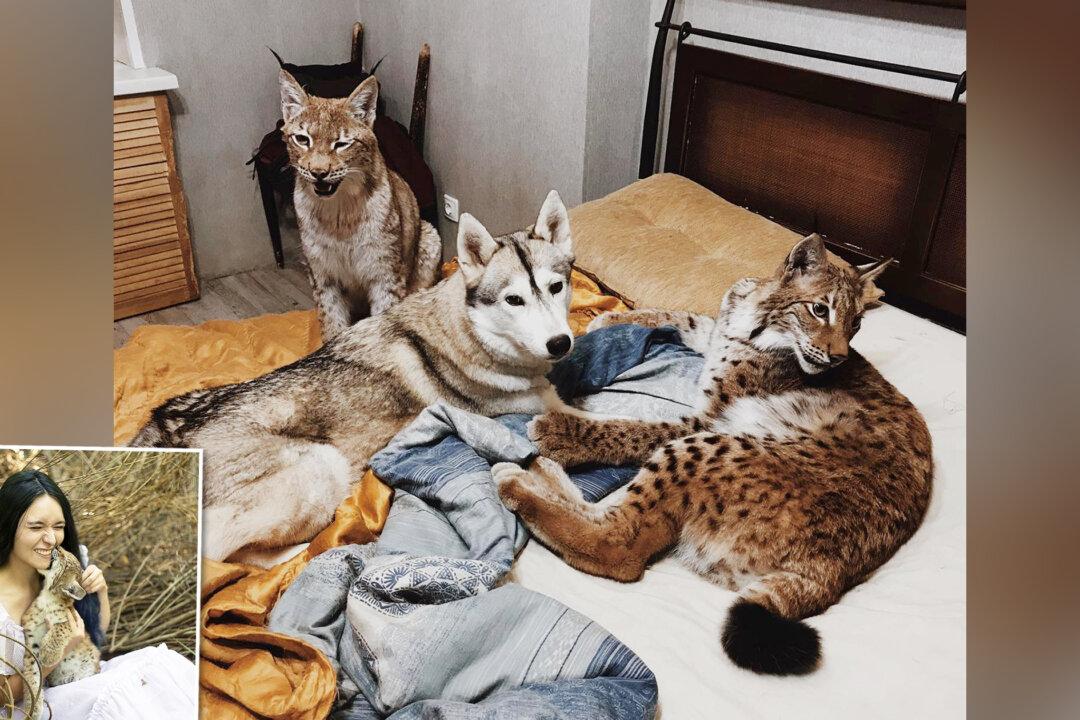When a Russian animal lover learned that lynxes were still being bred for fur in her country, she rescued two of these cubs from a fur farm, raising them in her huge animal family of horses, foxes, and dogs. Today, the lynxes are healthy, tame, goofy, and very much part of the family.
Anastasia Poznyak was born and raised in Saint Petersburg, Russia, where she currently works as a scientific writer and translator. She cares for seven horses, two lynxes, two foxes, and 15 dogs.





